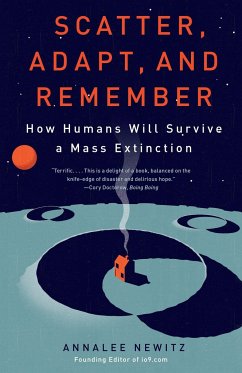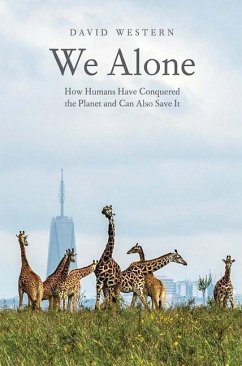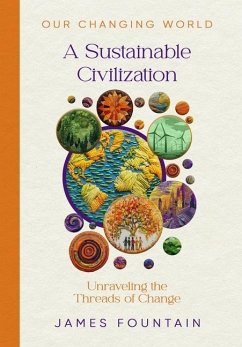
Toward a New Civilization
Why We Must Tame Our Instincts to Save Our World
Versandkostenfrei!
Versandfertig in über 4 Wochen
22,99 €
inkl. MwSt.

PAYBACK Punkte
11 °P sammeln!
"Civilisation is a term used to describe a superior level of accomplishments of certain nations...We humans are the cause of hazards to our existence created by overpopulation and environmental degradation. We are the designers of an economy that favours the well-to-do to the detriment of the disadvantaged. We are the contrivers of religious systems, some of which are responsible for crimes committed by humans against humans, and last but not least, we are the instigators of mass slaughters resulting from wars fought in anger...These acts bode ill for civilisation...Humanity nevertheless possesses the capacity to free itself from some of the burdens imposed by the natural order. We must discover that our welfare depends on the rejection of the natural order, so as to be freed from the struggle for the survival of the fittest, an order totally in conflict with morality...For the aims of morality are antithetical to nature's imposed scheme of things, reflecting the conflict between our aims and nature's designs..." - From the Introduction.
"Civilization is a term used by literary circles, historians, and publicists to describe a superior level of accomplishments of certain nations. After many later attempts to refine the definition, references are made to the difficulty posed by the physical environment and nature's physical challenges, which had to be overcome because they presented a danger to the human race. "Astonishingly, ignored was the importance of morality and the influence it exercised on the way humans treat each other within the framework of a social setting. "For the actions of men and women, if unhindered in the struggle for self-preservation and seeking material prosperity to attain the desired level of creature comforts, give rise to self-made obstacles in their quest to defy the natural order. We humans are the cause of hazards to our existence created by overpopulation, environmental degradation, and injecting various toxic substances into the food supply; we are the designers of an unbalanced economy whose stratification favors the well-to-do to the detriment of the disadvantaged, keeping most in a state of turmoil; we are the contrivers of religious systems, some of which are responsible for the most unnatural crimes committed by humans against humans; last but not least, we are the instigators of mass slaughters resulting from wars fought in anger, causing ever increasing casualties and destruction reaching totally destabilizing magnitudes. These acts bode ill for civilization. "Humanity, that flawed creation of a flawed nature, in bondage to survival instincts and a virtual slave to circumstances beyond its control, nevertheless possesses the capacity to free itself from some of the burdens imposed by the natural order to rise above the gravitational pull confining all living species. We must discover that our welfare and that of society depend on the rejection of the natural order, so as to be freed, however moderately, from nature's evolutionary competition and the struggle for the survival of the fittest, an order totally in conflict with morality. For the aims of morality are antithetical to nature's imposed scheme of things, reflecting the conflict between our aims and nature's designs." From the Introduction












